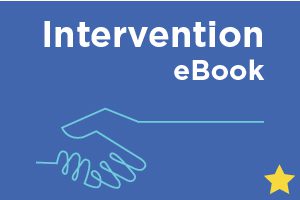If you’ve just discovered or have reason to believe your child is using nicotine, alcohol or experimenting with drugs, the first thing to do is sit down and take a deep breath. We know this is scary, but you’re in the right place. Take a beat and prepare for the important conversation ahead. Some brief preparation now can lay a foundation for more positive outcomes ahead.
Get on the same page
We’re all familiar with children’s trick of turning to one parent when the other says no. It’s best if you, and anyone who shares parenting responsibilities with you, can get on the same page about substance use before raising the subject with your child.
- Remind each other that nobody is to blame.
- Come to an agreement on the position you’ll take.
- Even if you disagree, commit to presenting a united front.
- Pledge not to undermine or bad-talk each other.
- Remind each other to come from a place of love when talking to your child.
Prepare to be called a hypocrite
Your child may ask, “Have you ever tried drugs”? There are ways to answer honestly that keep the emphasis less on you, and more on what you want for your child. For instance, you could explain that you smoked, drank or tried drugs in order to fit in, only to discover that’s never a good reason to do something. Focus on the fact that substances affect everyone differently. Just because your life wasn’t harmed by substance use, you’ve seen it happen to too many others.
Don’t let your response become a justification for substance use. Focus on the issue at hand. You want to keep your child healthy and safe, and this means avoiding substance use.
- Be honest – but be sure they know you don’t want them using.
- If you vape or use tobacco and your child calls you on this, mention that you are an adult, and yes, you can do this since it’s legal – but you understand that you shouldn’t and it’s not healthy. Underscore how hard it is to stop as an adult and that you want to help your child to avoid making the same mistakes.
- If you’re in recovery, think of your past substance use as an experience you can use draw from to help improve your child’s future. Tell your child, “I did these things but I made wrong choices, and I want you to know your family history.”
Gather any evidence
It’s understandable to have some reservations about snooping in your child’s room or through their belongings. Remember that your primary responsibility is to protect their well-being. As you gather evidence, try to anticipate different ways they might deny responsibility, like the excuse “I’m holding it for someone else.” Even if you don’t have an airtight case, you’ll be better prepared for the important conversation ahead.
Common hiding places include:
- Dresser drawers, beneath or between clothes
- Desk drawers
- Small boxes – jewelry, pencil, etc.
- Backpacks, purses or other bags
- Under a bed
- In a plant, buried in the dirt
- Between or inside books
- In containers designed to conceal – fake lipstick tubes, fake soda cans, etc.
- Inside over–the–counter medicine containers (Tylenol, Advil, etc)
Set the stage
Take a deep breath and set yourself up for success by creating a safe, open and comfortable space to talk.
- Don’t start a conversation when your child is intoxicated or under the influence. Hold off until everyone has a clear head.
- Get on their level, literally. If your child is sitting, you want to be sitting as well.
- Turn off phones and step away from other distractions. Avoid interruptions while you’re talking.
- Think about your goals for the conversation. Consider writing them down to review how effective the conversation was later.
- Try to put any panic or anger aside. If you’re anxious, find a way calm yourself beforehand, like taking a walk or speaking with a friend for emotional support.
Remain calm
As angry or frustrated as you feel, keep reminding yourself to speak and listen from a place of love, support and concern.
- Try to stay as calm and relaxed as possible throughout the conversation.
- Avoid overreacting to what has already happened. Instead, focus on what you want for your child in the future.
- Watch your voice. You may want to scream and yell, but it’s important to maintain the calm and avoid pushing your child away.
- Body language counts. Try a relaxed, open posture and avoid large gestures or crossed arms.
- Listen as much as you talk. Be sure it’s a back-and-forth, not a lecture.
- Try to not take criticism personally or get defensive. Let it be an opportunity for further discussion.
- Focus completely on your child. Try to see things from their point of view which will help you better sympathize.
- Recognize when you don’t have the energy to be a good listener and agree to restart the conversation (as long as it isn’t dire) at a later, better time.
Start talking
You’ve collected your thoughts and steeled your nerves, but how do you actually start talking? And more importantly, get your child to talk too?
- Express how much you care. Explain that the reason you’re talking and asking questions is because you want them to be healthy, safe and happy.
- Let your child know you value their honesty and are willing to listen without judgment.
- Ask open-ended questions. These are questions that elicit more than just “yes” or “no.”
- Let them know you’re listening. Reflect back what you’re hearing by rephrasing and asking for input — “Did I get everything? — or with nonverbal cues like nodding and smiling.
- Offer empathy and compassion. Demonstrate understanding and show your child you get it.
- Clearly state any evidence you’ve found, e.g., “Your grades have dropped, and I found empty beer cans in your car.”
- Give lots of praise and positive feedback, e.g., “I’ve noticed what a good friend and role model you are.” Teens and young adults need to know you can still see beyond the things they’ve done wrong.
- Reassure that you can always be counted on for support and that your child can confide in you whenever needed.
- Physical connection is important. Put a hand on your child’s shoulder or give a hug when it feels right.
- Listen. Sometimes they just need to get things off their chest.
- Be aware that your child could be hiding their true feelings out of fear, embarrassment, or something else.
- Listen between the words. Pay attention to body language, facial expressions and your child’s difficulty in finding the right words to use.
- Thank your child for talking with you. Even if the conversation didn’t go exactly as planned, your gratitude will make your child feel good and shows it was important to you.
Work through barriers
It can be difficult to get past a flat-out denial of substance use. Some kids can’t bear to take responsibility for their behavior and want to look good at all costs.
- Focus on the behavior and why it worries you. Don’t make it sound like you think your child is a bad person because they tried substances.
- If your child is preoccupied with framing the discussion around trust, keep emphasizing your concerns for their health and safety.
- Insist on the value of truth telling. Explain that people trust you more when you are honest.
- Think about how you could verify any questionable claims — for example, if your child says they spent the day at a friend’s house, tell them you may need to call the friend’s parents to check on the story.
- If you have objective proof that your child is lying, bring it up — but try not to make it a triumph. It’s not about proving they lied to you, it’s about keeping your child safe.
- Try to find out why they lied instead of going straight to reprimanding them for it. Keep talking and let your child know that you will get to the truth and do what it takes to keep them safe.
- Consider granting immunity. Some young people get caught in a web of lies and can’t get out. You can sometimes help by offering a chance to clear the record. Allow an opportunity to tell the truth free from any immediate consequences.
- In the future, acknowledge and reward their honesty.
Keep an open dialogue
Have you succeeded in having a productive conversation? Give yourself a well-deserved pat on the back, but don’t stop there. Keep the dialogue open.
- Review the goals you had for your initial conversation. Which ones were met and which will be saved for a later date?
- Reflect on what went right and what went wrong during each conversation so that you can make improvements for next time.
- Make a list and tackle any follow-up items (e.g., understanding more about your child’s anxiety and finding ways to help them).
- Have regular check-ins where you discuss the rules and the consequences in place, and how they are working for everyone.

Download your free guide to speaking up
You can never be too safe or speak up too soon – even if you think they’re just “experimenting.” Download the Intervention eBook, our comprehensive guide to taking the first important steps to address your child’s drinking or drug use.
 Get Support
Get Support
